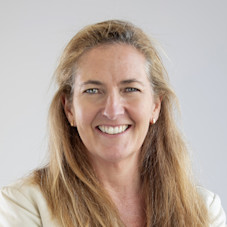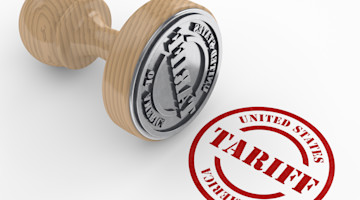Despite a slight increase from 45.6 to 45.8 in S&P Global’s PMI survey for August, Europe’s manufacturing sector faces significant challenges, especially in Germany and France. A PMI below the 50 mark signals an ongoing contraction.
Despite the struggles in manufacturing, there are opportunities for innovation and recovery in some sectors. The European Commission, led by Ursula Von der Leyen, has outlined key objectives to reduce administrative burdens, support a smooth green transition, and foster innovation, particularly for small and medium-sized enterprises. Streamlining regulations could enable sectors like machine tools to focus on increasing production efficiency and developing new technologies. Additionally, Europe’s push for climate neutrality by 2050 and investments in clean technologies offer significant opportunities for manufacturers, especially in energy-efficient machinery and digital solutions.
The global rail supply market, driven by urbanization and sustainability trends, is expected to grow by 3% annually to reach $260 billion by 2029, according to UNIFE. Manufacturing companies specializing in green technologies, such as electric multiple units and high-speed rail infrastructure, are well-positioned to benefit from this expansion.
The additive manufacturing (AM) sector also holds growth potential, with foreign markets driving demand. Companies offering solutions with ceramics, metals, and plastics are expected to see the highest demand. The medical and automotive sectors are anticipated to drive new orders, with the latter showing significant recovery. The aerospace sector remains stable, while the chemical and pharmaceutical sectors show a weakening trend. Overall, according to CECIMO, the AM Confidence Index indicates a slight recovery, suggesting optimism for moderate growth across the industry in the near future.
A few recently announced projects and investment news items are listed below.
Collins Aerospace, Pratt & Whitney, and Delft University of ��������ֱ�� have signed a research agreement focusing on sustainable aviation technologies, including advanced materials, hydrogen propulsion, advanced manufacturing, and industrial design. The collaboration aims to invest in high-speed intelligent inspection systems for lightweight, recyclable materials and novel engine designs utilizing thermal energy recovery to boost fuel efficiency and reduce emissions. This partnership is crucial for achieving climate-neutral aviation by 2050.
Rheinmetall and Honeywell have formed a strategic partnership that offers significant manufacturing opportunities in defense and industrial applications. Manufacturers can contribute by producing optical components such as thermal imaging cameras and helmet-mounted displays for the Honeywell 360 Display, which provides augmented reality and 360-degree situational awareness for tactical vehicles. The partnership also highlights manufacturing opportunities in auxiliary power units, thermal management and cooling systems, high-performance batteries, advanced cooling technology for modern weapon systems, counter-unmanned aircraft systems, electronic warfare, and building automation for military infrastructure. These areas present significant growth prospects for manufacturers of advanced defense technologies and energy-efficient systems.
Hitachi Energy is investing over $1.5 billion to expand its global transformer manufacturing capacity and support electrification efforts. This includes a new $180 million state-of-the-art transformer factory in Vaasa, Finland, and a $30 million expansion in Bad Honnef, Germany. These investments aim to meet growing demand and provide sustainable electrical solutions.
Aurubis, a leading multi-metal producer, is investing approximately $18 million to enhance its copper rolling mill in Stolberg, Germany. The upgrades aim to increase production capacity, improve energy balance, and demonstrate the company's commitment to sustainability. The new equipment has already been integrated into daily operations, showcasing Aurubis' dedication to innovation and environmental responsibility.
Murata Manufacturing has recently opened a new $65 million silicon capacitor production line at its plant in Caen, France. This move is part of the company's strategy to improve its European manufacturing capabilities. The initiative is in line with broader efforts supported by the CHIPS Act and IPCEI (Important Projects of Common European Interest), which emphasize the importance of local production. The new production line will focus on manufacturing capacitors with a thickness of 50 micrometers, primarily for mobile phones, while also increasing capacity for mass markets. Murata has continued to expand since acquiring the Caen facility in 2016 through the purchase of the French startup IPDiA.
Orano's $1.85 billion expansion of the Georges Besse 2 plant at the Tricastin site creates significant opportunities for manufacturing companies. The project will increase production capacity by over 30%. Manufacturers specializing in construction materials, machinery, and technology will find ample opportunities to participate in this large-scale project. As Orano aims to enhance Western countries' energy sovereignty, partnerships with firms providing advanced manufacturing solutions and engineering services will become increasingly valuable.
Trumpf Hüttinger has expanded its R&D center in Zielonka, Poland, by adding advanced laboratory capabilities and production space. This expansion will support the development of high-voltage technologies for the global semiconductor industry, emphasizing the company's commitment to innovation and strengthening its international presence. The increased R&D spending presents significant opportunities for manufacturing companies to participate in cutting-edge production processes, especially in sectors like plasma coating, laser excitation, and induction heating.
For more information, please contact Conchi Aranguren at caranguren@AMTonline.org.









